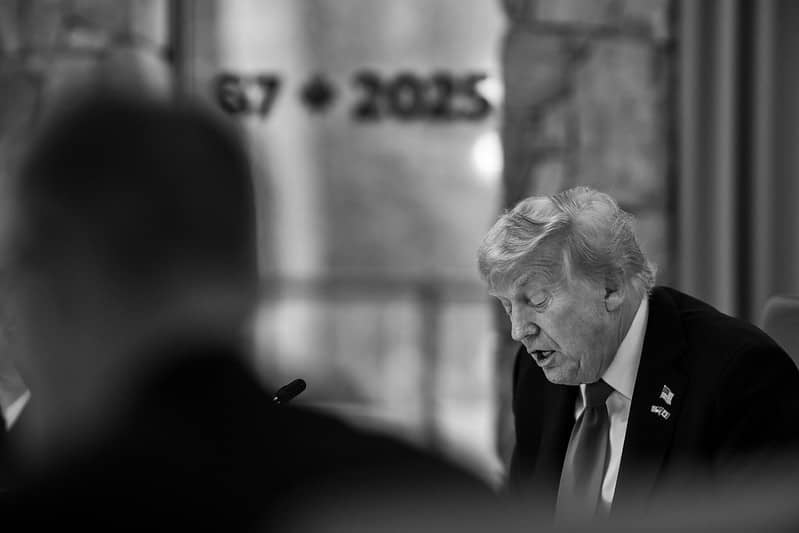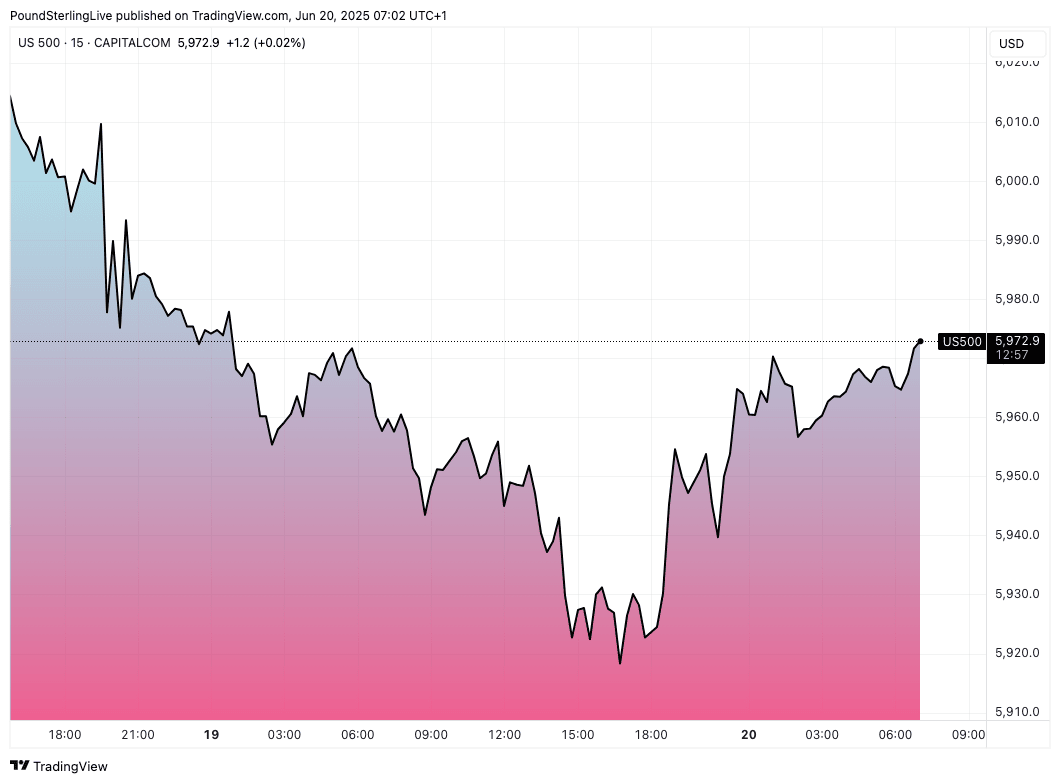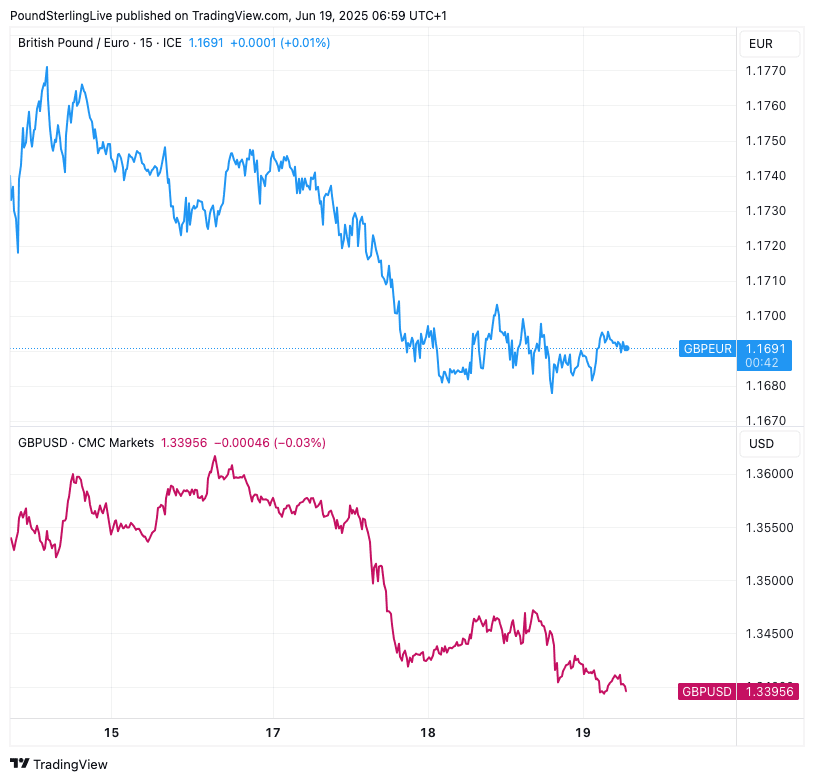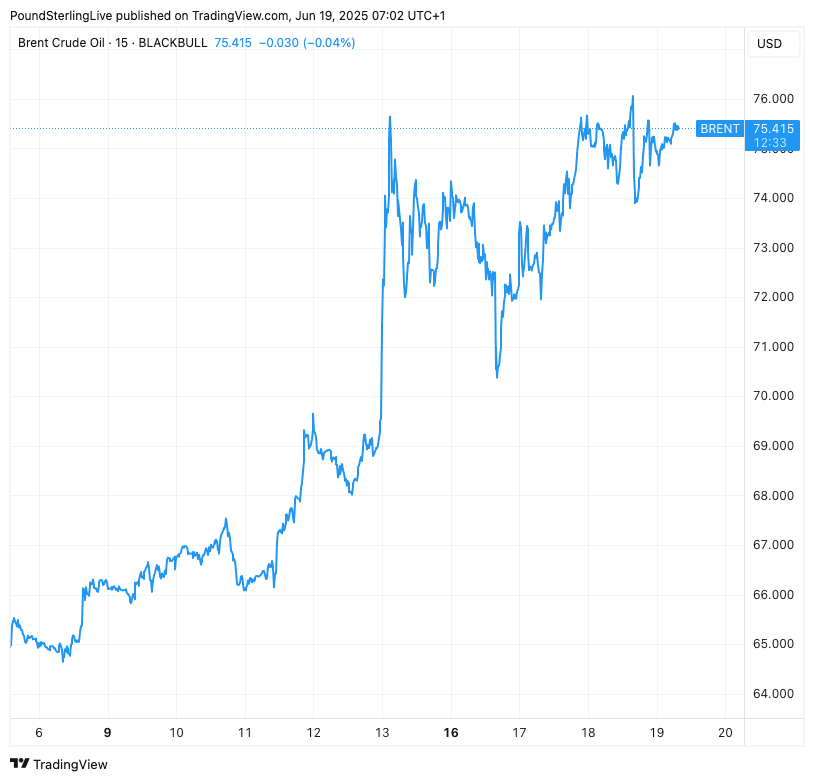Pound Sterling Off the Floor, War Fears & Bank of England in Control
- Written by: Gary Howes

Official White House Photo by Daniel Torok.
The Pound is off recent lows following the Bank of England decision and amidst ongoing Middle East tensions.
The Bank kept interest rates level and sent a clear enough signal that August would be the date of the next cut.
Given that the market was virtually fully geared up for this scenario, there were no surprises for the Pound.
The Pound was heavily sold against the Euro over the past ten days, as markets adjusted from seeing no August cut to fully pricing it in, owing to a string of soft data prints.
With the Pound-to-Euro back above 1.17 following the decision, it looks as though a sell-the-rumour / buy-the-fact reaction is underway, which is often a typical market response when a shift in expectations is finally confirmed.
Compare Currency Exchange Rates
Find out how much you could save on your international transfer
Estimated saving compared to high street banks:
£2,500.00
Free • No obligation • Takes 2 minutes
The Pound-to-Dollar has meanwhile stabilised at 1.3430 following a bout of risk-related selling pressure that ultimately benefited the oil-linked U.S. Dollar.
Elsewhere, Pound Sterling is making sizable advances against currencies that are particularly sensitive to down days on global stock markets, such as the Australian and New Zealand Dollars, and Emerging Market currencies.
Anxiety is high on reports senior U.S. officials are preparing for the possibility of a strike on Iran in the coming days. Aircraft carriers are being diverted to the Gulf, and it is expected that the British base at Diego Garcia will also be used as a launchpad for U.S. strikes on U.S. targets.
"The USS Nimitz, one of the largest warships in the world, suddenly changed its course to head towards the Middle East. U.S. equity futures decreased and oil prices remain elevated," says Samara Hammoud, FX analyst at Commonwealth Bank.
By late Friday morning, tensions had eased somewhat with the White House spokeswoman Karoline Leavitt saying Trump will decide within two weeks whether to strike Iran.
“Based on the fact that there’s a substantial chance of negotiations that may or may not take place with Iran in the near future, I will make my decision whether or not to go within the next two weeks,” Trump said in a message conveyed to the press by Leavitt.
The extended deadline creates the kind of uncertainty that will typically weigh on the GBP/USD and GBP/EUR pairs, while bolstering GBP/AUD, GBP/NZD et al. However, the mention of negotiations and that strikes aren't imminent, will offer some near-term relief.
Above: The U.S. S&P 500 has recovered from recent lows. This helps risk-sensitive pairs like GBP/EUR and GBP/USD recover.
Trump said on Wednesday that Iran was "in a lot of trouble" and demanded "unconditional surrender", adding that his patience has "already run out". By Thursday, reports suggest his mind is made up on the matter, and it's just a case of pressing the button.
The U.S. military is prepared to carry out strikes on Iran’s nuclear facilities along with other military and political targets. "I may do it, may not," Trump said.
For financial markets, and indeed the world economy, the key issue here is oil and how Iran will respond in the Strait of Hormuz. This is the chokepoint between the Saudi peninsula and Iran, where Iran could flex some muscle by halting shipping.
Given that significant amounts of oil flow from the Middle East to global markets through this passage, markets are wary, and oil prices are elevated.
Above: GBP/EUR (top) and GBP/USD.
Higher oil prices have two implications for the Pound:
1) Under a forceful push to go 'green', the UK is shuttering its North Sea oil output and increasingly relying on foreign imports. This means higher oil prices will hit the economy and won't be offset in the current account via higher export earnings.
2) It boosts the value of the Dollar. The Dollar is a commodity currency in the sense that oil is denominated in dollars. Higher prices = higher USD demand. The U.S. has also become a major oil exporter in the past ten years, as fracking in the Permian basin means the U.S. is now the world's biggest producer.
Above: Brent crude has surged.
More broadly, geopolitical tensions introduce the kind of nervousness that keeps the Pound under pressure against 'safe havens' such as the Dollar, Yen, Franc and the Euro.
However, it does mean that the UK currency tends to advance against the more risk-sensitive currencies, which include the Australian and New Zealand Dollars.
Trade against the Canadian Dollar is less certain, as oil is a big export earner for Canada, meaning rising prices can be helpful.
For FX, the beating drums of war will keep this simple risk trade in play over the coming days as the U.S. readies to intervene and take out Iran's nuclear capabilities once and for all.







